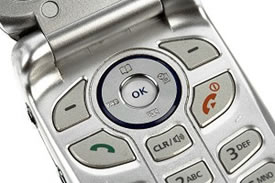Urban mining – more profitable than assumed
 The demand for precious metals never will diminish; neither will the amount of people who hunt for these precious metals. There are a new breed of treasure hunters who hunt for precious metals in dumpsters and other wastelands; they are called the urban miners. Urban mining simply means scavenging through the scrap metal in old electronic products in search of such gems as iridium and gold, and it is a growth industry around the world as metal prices skyrocket. A ton of ore from a gold mine produces just 5 grams (0.18 ounce) of gold on average, whereas a ton of discarded mobile phones can yield 150 grams (5.3 ounce) or more, according to a study by Yokohama Metal Co Ltd, another recycling firm. The same volume of discarded mobile phones also contains around 100 kg (220 lb) of copper and 3 kg (6.6 lb) of silver, among other metals. Recycling has gained in importance as metals prices hit record highs. Gold is trading at around $890 an ounce, after hitting a historic high of $1,030.80 in March. The materials recovered are reused in new electronics parts and the gold and other precious metals are melted down and sold as ingots to jewelers and investors as well as back to manufacturers who use gold in the circuit boards of mobile phones because gold conducts electricity even better than copper. Japan’s 128 million populations use their cell phones for an average of two years and eight months. That’s a lot of cell phone phones discarded every year, yet only 10-20 percent are recycled as people often opt to store them in their cupboards due to concerns about the personal data on their phones , said Yoshinori Yajima, a director at Japan’s Ministry of Economy, Trade and Industry. Just 558 tons of old phones were collected for recycling in the year to March 2007, down a third from three years earlier, industry figures show.
The demand for precious metals never will diminish; neither will the amount of people who hunt for these precious metals. There are a new breed of treasure hunters who hunt for precious metals in dumpsters and other wastelands; they are called the urban miners. Urban mining simply means scavenging through the scrap metal in old electronic products in search of such gems as iridium and gold, and it is a growth industry around the world as metal prices skyrocket. A ton of ore from a gold mine produces just 5 grams (0.18 ounce) of gold on average, whereas a ton of discarded mobile phones can yield 150 grams (5.3 ounce) or more, according to a study by Yokohama Metal Co Ltd, another recycling firm. The same volume of discarded mobile phones also contains around 100 kg (220 lb) of copper and 3 kg (6.6 lb) of silver, among other metals. Recycling has gained in importance as metals prices hit record highs. Gold is trading at around $890 an ounce, after hitting a historic high of $1,030.80 in March. The materials recovered are reused in new electronics parts and the gold and other precious metals are melted down and sold as ingots to jewelers and investors as well as back to manufacturers who use gold in the circuit boards of mobile phones because gold conducts electricity even better than copper. Japan’s 128 million populations use their cell phones for an average of two years and eight months. That’s a lot of cell phone phones discarded every year, yet only 10-20 percent are recycled as people often opt to store them in their cupboards due to concerns about the personal data on their phones , said Yoshinori Yajima, a director at Japan’s Ministry of Economy, Trade and Industry. Just 558 tons of old phones were collected for recycling in the year to March 2007, down a third from three years earlier, industry figures show.
As metals prices rise, the Japanese industry faces growing competition for scrap, which is pushing up prices. In response, Japanese firms are importing used circuit boards from Singapore and Indonesia, as they also contain valuable minor metals that Japan is particularly eager to recover. These minor metals such as indium, a vital component in the production of flat panel televisions and computer screens, antimony and bismuth are indispensable for producing many high-tech products. However, they are often not easy to acquire as China has tightened export controls, making it harder for Japanese manufacturers to buy these metals.
Source